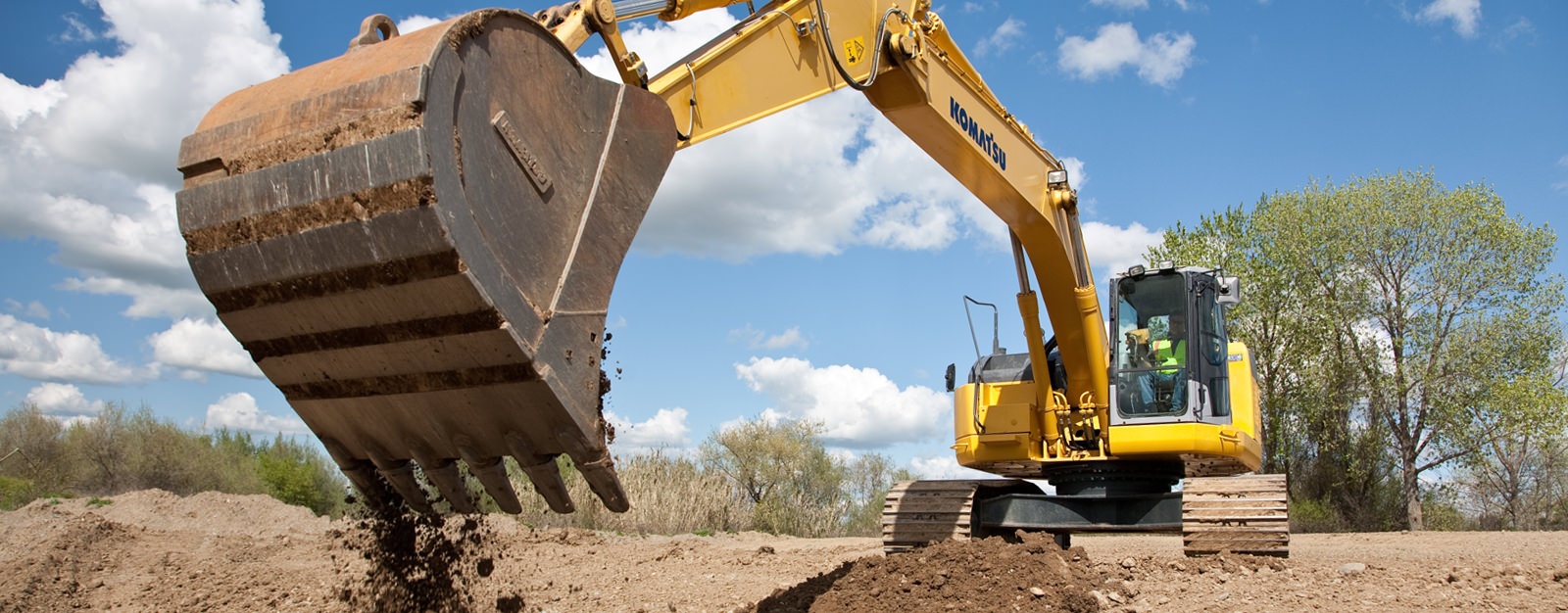Industrial Lancaster Trenching - Trenching Providers for Companies in Lancaster
Industrial Lancaster Trenching - Trenching Providers for Companies in Lancaster
Blog Article
Comprehensive Excavation Strategies: Understanding the Basics for Success
In the world of building and civil design, the significance of efficient excavation techniques can not be overstated. The cautious planning, exact execution, and careful focus to detail called for in excavation projects demand a thorough method that incorporates numerous fundamental facets. From initial soil evaluation to the application of security steps and normal development surveillance, grasping these core aspects is necessary for achieving success in any kind of excavation endeavor. The real proficiency exists not merely in comprehending these principles but in flawlessly integrating them to navigate the complexities of excavation jobs with finesse.
Recognizing Excavation Job Preparation

The preliminary stage of any kind of excavation project is the planning stage, where crucial decisions are made that can significantly influence the end result of the project. Comprehending the job range, timeline, and budget restraints is essential for creating an extensive excavation strategy that guarantees the job's success.
One trick element of excavation project preparation is the development of a comprehensive timeline that details the series of tasks, milestones, and deadlines. This timeline works as a roadmap for the task team, allowing them to track progression and make required modifications to make certain the project stays on timetable. Additionally, a distinct budget plan that represents all costs, including equipment rental, labor expenses, and products, is necessary for staying clear of cost overruns and delays. By very carefully taking into consideration all these factors throughout the preparation stage, excavation jobs can be performed successfully and effectively, bring about effective end results.
Soil Analysis and Site Analysis
Performing complete soil evaluation and website examination is an important action in the preparation phase of any kind of excavation job. Soil evaluation includes determining the make-up, structure, and properties of the soil at the excavation website. This info is important for understanding the dirt's bearing ability, dampness web content, and possibility for disintegration, which are crucial consider determining the excavation methods and equipment required for the project.
Site examination surpasses soil analysis and includes a more comprehensive assessment of the overall website problems. This assessment includes determining any potential threats, such as underground energies, environmental problems, or unpredictable terrain, that can affect the excavation process. By extensively reviewing the website, project supervisors can create efficient excavation techniques that prioritize safety, efficiency, and environmental management.
Utilizing innovative modern technologies like ground-penetrating radar, dirt sampling, and drone surveys can enhance the accuracy and performance of soil analysis and site examination. Spending time and sources in these initial steps can ultimately save time and avoid pricey hold-ups or complications during the excavation procedure.
Tools Choice and Usage
Efficient excavation projects count heavily on critical equipment selection and application to guarantee ideal performance and performance. Choosing the right devices for the task is critical in taking full advantage of effectiveness and decreasing downtime. Aspects such as the type of soil, depth of excavation, and task scope play a considerable duty in figuring out the most suitable equipment for the task at hand.

In addition to choosing the appropriate equipment, appropriate use is vital to job success. Operators has to be educated to manage the equipment securely and effectively - lancaster trenching. Routine maintenance checks and prompt repair services help protect against breakdowns and make sure constant performance throughout the project
Precaution and Laws Conformity
In the realm of excavation projects, focusing on safety and security measures and conformity with guidelines is extremely important to making certain a protected and legally sound functional setting. Safety and security steps include a variety of practices, including carrying out comprehensive site evaluations, executing proper signs and obstacles, and supplying adequate safety and security training for all employees associated with the excavation procedure. Adherence to regulations, such as OSHA demands in the United States, guarantees that the excavation job fulfills the essential requirements to shield workers, bystanders, and the surrounding atmosphere.

Tracking Progress and Adjusting Approaches
How can project managers properly track the advancement of excavation projects and adapt their strategies accordingly to enhance results? Tracking progression is vital for making sure that excavation tasks remain on track and satisfy deadlines. Job supervisors can utilize various devices and strategies to track progress, such as everyday progress reports, regular website examinations, and progressed tracking technologies like drones and GPS tracking systems. By continuously keeping track of the task's improvement, supervisors can determine any potential hold-ups or concerns early on and take proactive actions to address them.

Final Thought
Finally, mastering the principles of comprehensive excavation approaches is essential for the success of any kind of task. By recognizing project planning, analyzing soil and website conditions, choosing suitable equipment, abiding by safety blog here guidelines, and keeping an eye on progress, task managers can make certain a smooth and reliable excavation process. Implementing these techniques will certainly result in effective end results and reduce prospective dangers or problems throughout the excavation job.
The first stage of any kind of excavation job is the planning phase, where crucial decisions are made that can substantially influence the result of the task. Understanding the task spending plan, timeline, and range constraints is critical for developing a detailed excavation plan that makes certain the project's success.
How can predict managers efficiently track the advancement of excavation jobs and adapt their techniques as necessary to optimize results? By very closely keeping an eye on progression and being willing to adapt methods, job supervisors can improve the overall success of excavation tasks.
By comprehending project planning, analyzing dirt and site conditions, choosing proper devices, abiding with safety and security laws, and monitoring progression, job supervisors can ensure a reliable and smooth excavation procedure.
Report this page